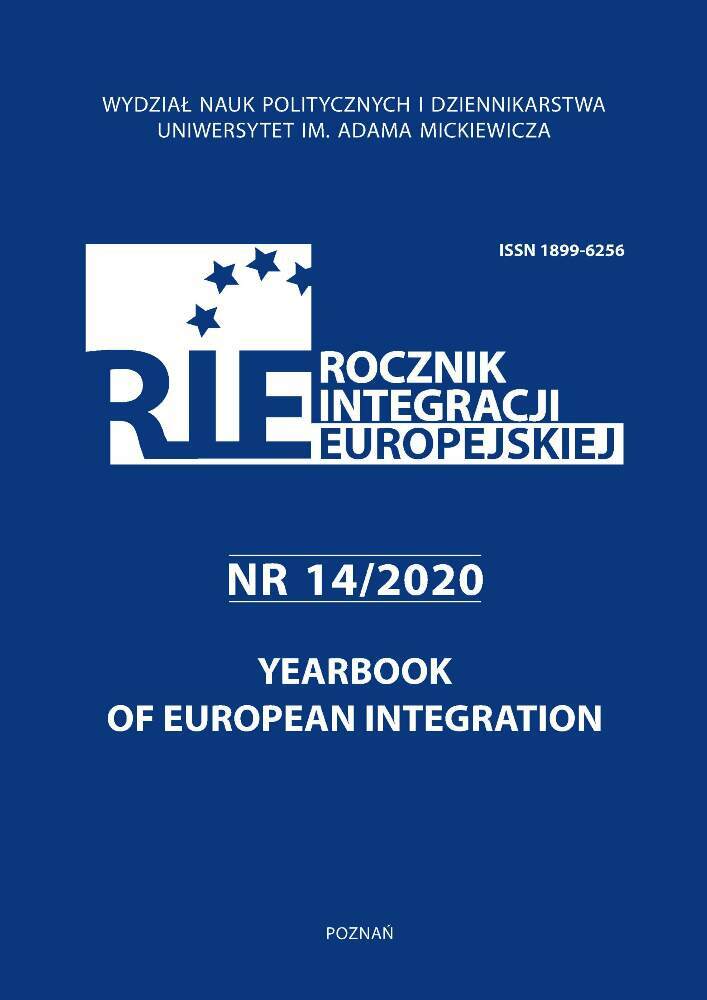Abstract
The article is devoted to the analysis of the influence of Russian propaganda on relations between the European Union member states and its eastern neighbors in the case of Poland and Ukraine. The analysis is related to an issue that can be formulated as the following research question: how exactly does propaganda affect domestic and foreign policy processes in countries? A multidisciplinary approach to the study of the impact of political propaganda enabled the use of such methods as: systemic, institutional, structural-functional, content analysis, and descriptive. The article gives definition and main characteristics of the concept of propaganda in political context. Special attention is paid to reasons for the successful use of propaganda by Russia in fanning the conflict in Ukraine, which is presented in the article. The complex of means and methods used in Russia’s information policy to influence Western countries is denoted. The author presents the main narratives of Russian propaganda, and identifies the features of its pressure on interstate relations between Ukraine and Poland by analysing articles in pro-Russian periodicals of Poland and Ukraine. Conclusions are drawn on the need for strong international resistance to Russian propaganda, and to define the shortcomings of the system for countering Russian information aggression in general and propaganda in particular.
Funding
The article was written as part of a project co-founded by the Erasmus Programme of the European Union “Jean Monnet Center of Excellence EU EX/ACT-EU External Actions in the contested global order – (in)coherence, (dis)continuity, resilience.”
References
Aronson E. (2003), Epoha propagandyi: Mehanizmyi ubezhdeniya, povsednevnoe ispolzovanie i zloupotreblenie, Pererab. izd., Praym-Evroznak, SPb.
Dvoretskiy I. H. (1976), Latinsko-russkiy slovar, izd. 2-e, pererabot. i dop., Moscow.
Eremenko S. (2015), «Komsomolskom» getto, ili pochemu pochti za god voynyi ukrainskaya vlast ne sdelala prakticheski nichego, chtobyi donesti ob’ektivnuyu informatsiyu do vostochnyih prostorov stranyi, Den, 27–28.02.2015.
Galus A., Nesteriak Y. (2019), Digital media in a contemporary conflict – example of Ukraine, Poznań, https://repozytorium.amu.edu.pl/bitstream/10593/25385/1/02-Galus_Nesteriak.pdf
Golovchenko Y., Hartmann M., Adler-Nissen R. (2018), State, media and civil society in the information warfare over Ukraine: citizen curators of digital disinformation, “International Affairs”, vol. 94, issue 5, 01.09.2018.
Information warfare in the Internet.Countering pro-Kremlin disinformation in the CCE countries (2017), https://www.stopfake.org/content/uploads/2017/07/INFORMATION-WARFARE-IN-THE-INTERNET-REPORT-1-1.pdf.
Informatsionnaya voyna Kremlya protiv Ukrainyi: tseli i sredstva, 19.09.2017, https://dif.org.ua/article/informatsionnaya-voyna-kremlya-protiv-ukrainy-tseli-i-sredstva.
Kremlin-faked Polish-Ukrainian relations, Human Rights in Ukraine, 2.11.2015, http://khpg.org/en/index.php?id=1446155700.
Kusa N. (2018), Destabilization of the Internal Situation as One of the Main Threats to the Security of Russian Federation, “Przegląd Strategiczny”, Issue 11.
Lasswell H. D. (1927), The Theory of Political Propaganda, “American Political Science Review”, vol. 21, Issue 3.
Lavrov S., Krizis v Ukraine vyizvan popyitkami sdvinut granitsyi Evroatlantiki, “Korrespondent”, 22.10.2014, http://korrespondent.net/world/russia/3434686-kryzys-v-ukrayne-vyzvan-popytkamy-sdvynut-hranytsy-evroatlantyky-lavrov.
Lucas E. (2015), „The Economist”, Sztukmistrze z Kremla, 14.02.2015, “Gazeta Wyborcza”, http://wyborcza.pl/magazyn/1,124059,17403467,Sztukmistrze_z_Kremla.html.
Nemenskiy O. B. (2014), Polsko-ukrainskie otnosheniya na sovremennom etape, “Problemyi natsionalnoy strategii”, no. 6 (27), https://riss.ru/images/pdf/journal/2014/6/07_.pdf.
Ozerov A. A. (2015), Konflikt na Ukraine: popyitka destabilizatsii vsego evraziyskogo prostranstva, ofitsialnyiy sayt Rossiyskogo Institutu Strategicheskih Issledovaniy, Analitika, 28.01.2015, http://riss.ru/analitycs/7316/#.VNIGviy3o3w.
Pacek P. (2019), Polish perspective on psycho-informational war conducted by Russian Federation, Österreichische Militärische Zeitschrift, ÖMZ, 10.01.2019, https://www.oemz-online.at/display/ENSPACE/Polish+perspective+on+psycho-informational+war+conducted+by+Russian+Federation.
Plehanov G. V. (1925), Nashi zadachi, “Gosudarstvennoe izdatelstvo”, vol. 3, Moscow.
Rácz A. (2015), Russia’s Hybrid War in Ukraine. Breaking the Enemy’s Ability to Resist, The Finnish Institute of International Affairs, Helsinki.
Rogozińska A. (2019), Non-military dimension of the hybrid war in Ukraine, https://repozytorium.amu.edu.pl/bitstream/10593/24872/1/10-Rogozinska.pdf.
Rushchenko I. P (2015), Rosiisko-ukrainska hibrydna viina: pohliad sotsioloha: monohrafiia, Kharkiv.
Sproule J. M. (1994), Channels of propaganda, Edinfo Pr, Bloomington, IN.

